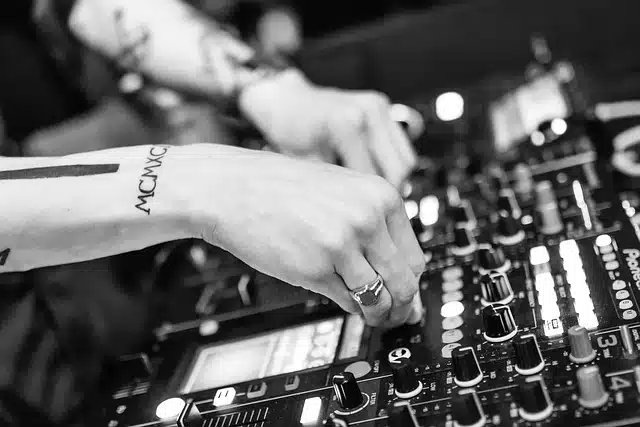Music has been a fundamental part of human culture for millennia, evolving with each era’s technological advancements. Technology has revolutionized how music is created, produced, and enjoyed in today’s digital age. Musicians and producers can now access various innovative tools and techniques that empower them to explore new creative horizons. This comprehensive guide will delve into making music with new and advanced technology, from the software and hardware essentials to cutting-edge trends and future possibilities.
The Creative Process
Musicians now use MIDI controllers and virtual instruments to compose melodies, chords, and basslines. Alternatively, you can explore music theory software to assist in harmonizing and structuring your compositions or utilize lyric writing tools to craft meaningful lyrics that resonate with your audience. Explore online, where you may find https://soundful.com/ that can help you refine your music composition process. Additionally, sound design is a crucial element in electronic music and film scoring. Learn subtractive, additive, FM, and wavetable synthesis to create unique sounds or manipulate audio samples to craft original textures and instruments. You can also dive into granular synthesis for experimental soundscapes or capture real-world sounds for your music, adding authenticity.
The Digital Audio Workstation (DAW)
At the heart of modern music production lies the Digital Audio Workstation, or DAW. These powerful software applications are the central hub for creating, recording, editing and mixing music. There are numerous DAWs available, each with its unique features and workflows. Consider your musical style, preferred platform (Windows or macOS), and budget when selecting a DAW. DAWs come bundled with virtual instruments and effects plugins, but the world of third-party plugins offers endless possibilities. Explore synthesizers, samplers, virtual drum machines, and audio effects to enhance your sound palette. Many plugins emulate classic analog gear, providing a vintage touch to your music.
Advanced Production Techniques
Electronic music genres require specialized techniques:
- Beatmaking: Create intricate drum patterns with drum machines and sample manipulation.
- Synth Soundscapes: Experiment with evolving synth pads and textures.
- Sidechain Compression: Achieve that “pumping” effect by sidechaining elements to the kick drum.
- Max for Live (Ableton): Dive into Max for Live to create custom audio and MIDI effects.
Mixing and mastering are also essential for achieving a professional sound. So, learn about EQ, compression, reverb, and spatialization to balance your mix and utilize mastering plugins for final polish and loudness optimization. Then, compare your mix to reference tracks to ensure it stacks up. Additionally, VR and spatial audio technologies are changing how people experience music. Create immersive audio experiences for VR applications and use ambisonic recording and processing for 3D soundscapes. You can also produce music optimized for headphone listening.
Marketing and Distribution
Technology plays a pivotal role in marketing and distributing your music in the digital age. Establishing a solid online presence is essential for promoting your music. Utilize social media platforms, artist websites, and online music profiles to engage with your audience and showcase your work. Advanced technology provides valuable insights into your audience’s behavior and preferences. Use data analytics tools to inform your marketing strategies. Access Spotify’s listener data, including demographics, listening habits, and geographic locations. Use this information to tailor your promotional efforts. Monitor website traffic, track user engagement, and understand where your online traffic is coming from. Optimize your website and marketing campaigns based on this data.
The Future of Music Technology
As technology advances, the future of music production holds exciting possibilities. For instance, AI algorithms can generate melodies, harmonies, and even lyrics. AI-powered plugins can assist in mixing tasks and suggest improvements. Attend virtual concerts and music festivals from your home or collaborate with artists globally in virtual studios. Create interactive VR music videos for a unique viewer experience.
Furthermore, blockchain technology enables artists to retain ownership and control of their music, so consider using smart contracts for transparent royalty distribution and licensing. Finally, explore IoT-enabled musical instruments and controllers and connect your studio equipment seamlessly through IoT devices.
Resources and Communities
Explore online resources and communities to stay updated and continually enhance your skills. Platforms like Coursera, Udemy, and Skillshare offer music production courses. Join forums like Gearslutz, Reddit’s r/WeAreTheMusicMakers, and specialized Facebook groups for advice and collaboration, or learn from music production experts through tutorials and walkthroughs. Follow blogs and websites dedicated to music production trends and tips.
Music production with new and advanced technology is vast and ever-evolving. Whether you’re a beginner exploring the basics of a DAW or an experienced producer delving into AI-assisted music creation, the possibilities are limitless. Embrace the tools, techniques, and trends discussed in this guide, and embark on a creative journey that pushes the boundaries of music in the digital age. With dedication and innovation, you can craft music that resonates with audiences worldwide and contributes to the ongoing evolution of musical expression.
Lucas Noah, armed with a Bachelor’s degree in Information & Technology, stands as a prominent figure in the realm of tech journalism. Currently holding the position of Senior Admin, Lucas contributes his expertise to two esteemed companies: OceanaExpress LLC and CreativeOutrank LLC. His... Read more
